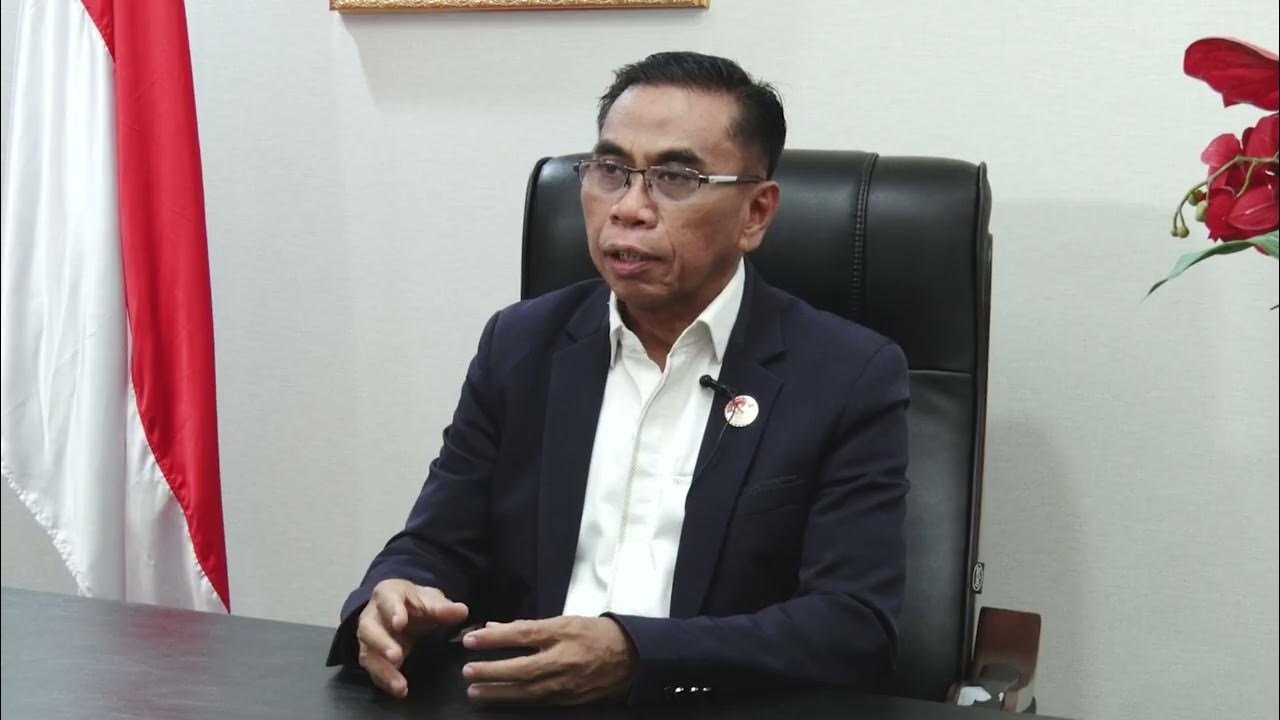ETIKA DUNIA MAYA ( Si Juki X Kominfo Eps 03)
Summary
TLDRThis video script discusses the importance of practicing positive digital behavior, inspired by the values of Pancasila, Indonesia's state ideology. It highlights the negative impact of online hate and the need for a more respectful, cooperative online culture. The script encourages users to embrace empathy, unity, and social justice on social media, promoting helpful actions like supporting others, sharing information, and spreading kindness. It also reminds viewers to reject discrimination, practice human rights, and prioritize love over hatred in online interactions.
Takeaways
- 😀 The digital era has made the internet widely accessible to everyone, bringing new challenges to digital culture.
- 😀 Netizens in Indonesia have been labeled as the most impolite in the Asia-Pacific region due to the negative and offensive comments online.
- 😀 The online world should be treated similarly to the real world, where kindness and respect should prevail over hate and insults.
- 😀 Digital behavior should align with the values of Pancasila, Indonesia's national ideology, which promotes respect, humanity, and unity.
- 😀 The first principle of Pancasila teaches love, kindness, and compassion, which should be reflected in online interactions.
- 😀 The second principle of Pancasila emphasizes equality and human rights, encouraging online users to avoid discrimination and respect others.
- 😀 The third principle stresses unity and the need for cooperation, not conflict or online hatred, to maintain a harmonious digital space.
- 😀 Online criticism is fine, but it should be constructive, and hate speech should be avoided as it harms digital unity.
- 😀 Social media platforms should be used for mutual support, helping one another by sharing information, promoting businesses, or providing financial assistance.
- 😀 The values of Pancasila can guide digital culture, encouraging mutual respect and appreciation for cultural differences online.
Q & A
What does the speaker highlight about the behavior of netizens in the digital age?
-The speaker points out that many netizens, particularly from Indonesia, have been criticized for being the most impolite in the Asia-Pacific region. This behavior is reflected in harsh comments and insults on social media, which the speaker believes mirrors poor behavior in daily life.
How does the speaker suggest we should behave in the digital world?
-The speaker suggests that we should practice kindness and positivity in the digital world, just as we would in real life. This includes avoiding hateful comments and engaging respectfully with others.
What is the relationship between Pancasila and digital culture according to the speaker?
-The speaker connects Pancasila, Indonesia's foundational principles, to the behavior we should uphold in the digital space. Specifically, they mention that digital behavior should reflect the values of Pancasila, such as respect for religion, humanity, unity, and justice.
What is the first principle of Pancasila, and how does it relate to digital behavior?
-The first principle of Pancasila is 'Ketuhanan' (belief in God), which emphasizes love, compassion, and kindness. The speaker highlights that religion teaches love, and this should be reflected in digital behavior by avoiding hateful comments.
What does the second principle of Pancasila emphasize, and how is it relevant to social media?
-The second principle, 'Kemanusiaan' (humanity), stresses that everyone has equal rights and should not face discrimination. This principle is relevant to social media because it encourages fair treatment of all people, without spreading hatred or making discriminatory remarks.
How does the speaker interpret the third principle of Pancasila in the context of social media?
-The third principle of Pancasila, 'Persatuan' (unity), emphasizes the importance of unity. The speaker points out that social media behavior should foster unity rather than division, as negative actions like bringing others down prevent unity from being achieved.
What does the speaker say about the role of social media in promoting unity and collaboration?
-The speaker suggests that social media can be a platform for unity and collaboration, where people can help one another, promote businesses, share useful information, and offer financial support in times of need. This is a positive aspect of digital culture.
What is the significance of the fourth and fifth principles of Pancasila in the digital world?
-The fourth principle, 'Musyawarah' (deliberation), and the fifth principle, 'Keadilan Sosial' (social justice), both emphasize fairness and decision-making through consensus. In the digital world, these principles encourage open discussion and cooperation, as well as ensuring justice and fairness in how we treat others.
How does the speaker view criticism on social media?
-The speaker acknowledges that criticism on social media is acceptable as long as it is constructive and respectful. They believe in the value of healthy criticism and suggestions that aim to help others improve, rather than spreading negativity.
What example does the speaker give of how digital culture can be beneficial and based on Pancasila?
-The speaker provides examples of people helping one another on social media, such as promoting businesses, sharing valuable information, and even contributing to others' financial needs. These actions reflect the Pancasila values of kindness, unity, and justice in the digital space.
Outlines

此内容仅限付费用户访问。 请升级后访问。
立即升级Mindmap

此内容仅限付费用户访问。 请升级后访问。
立即升级Keywords

此内容仅限付费用户访问。 请升级后访问。
立即升级Highlights

此内容仅限付费用户访问。 请升级后访问。
立即升级Transcripts

此内容仅限付费用户访问。 请升级后访问。
立即升级浏览更多相关视频

Pancasila Sebagai Ideologi Nasional

Tantangan Ideologi Pancasila di Era Digital - TITIK PANDANG

Video Pembelajaran Materi "Nilai-Nilai Pancasila dalam Sejarah Bangsa Indonesia"

Ancaman, Tantangan, Hambatan, dan Gangguan terhadap Ideologi Pancasila dan NKRI

Urgensi Pancasila masuk dalam kurikulum

Materi Pokok Pokok Pikiran Pancasila
5.0 / 5 (0 votes)
